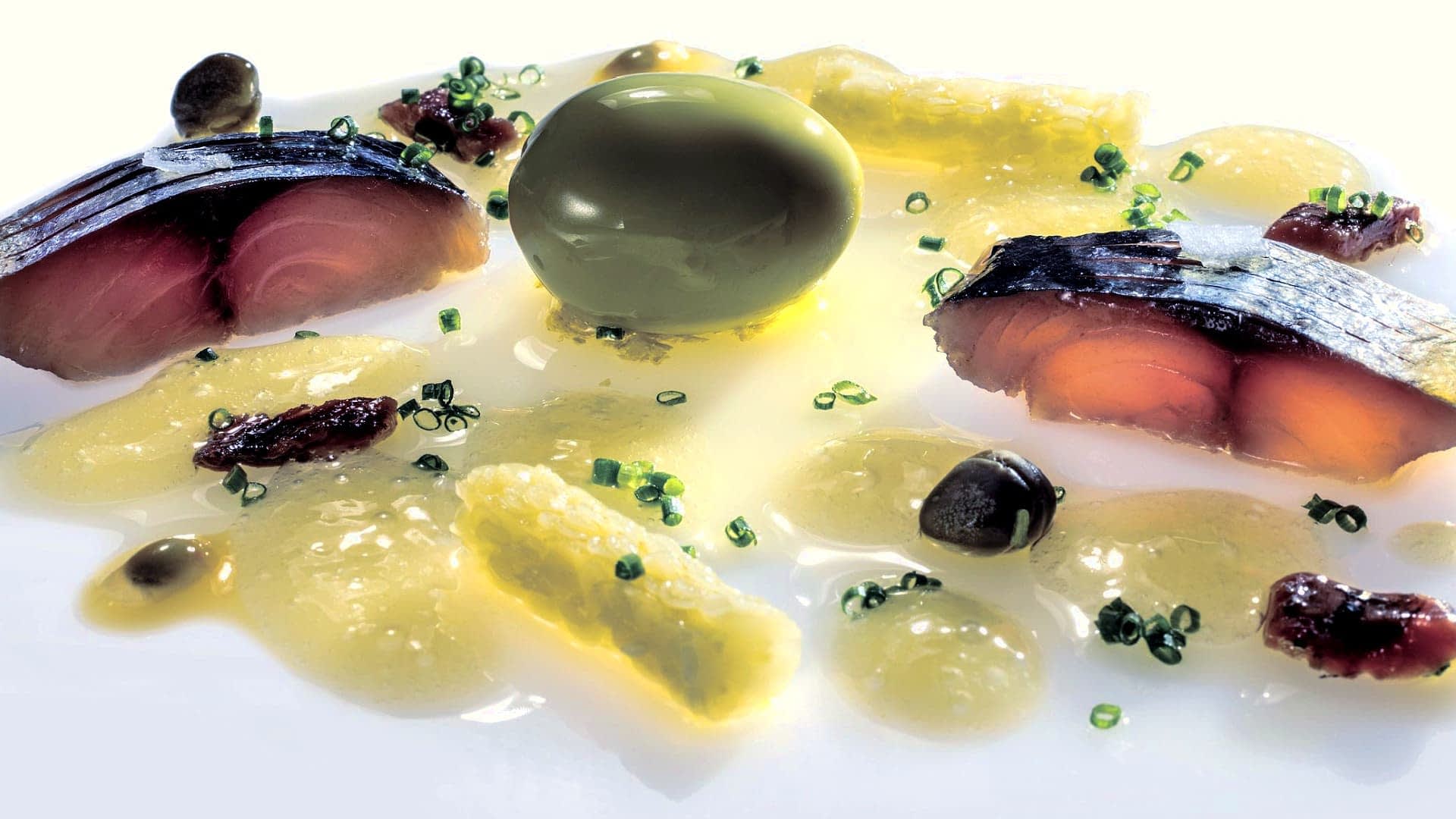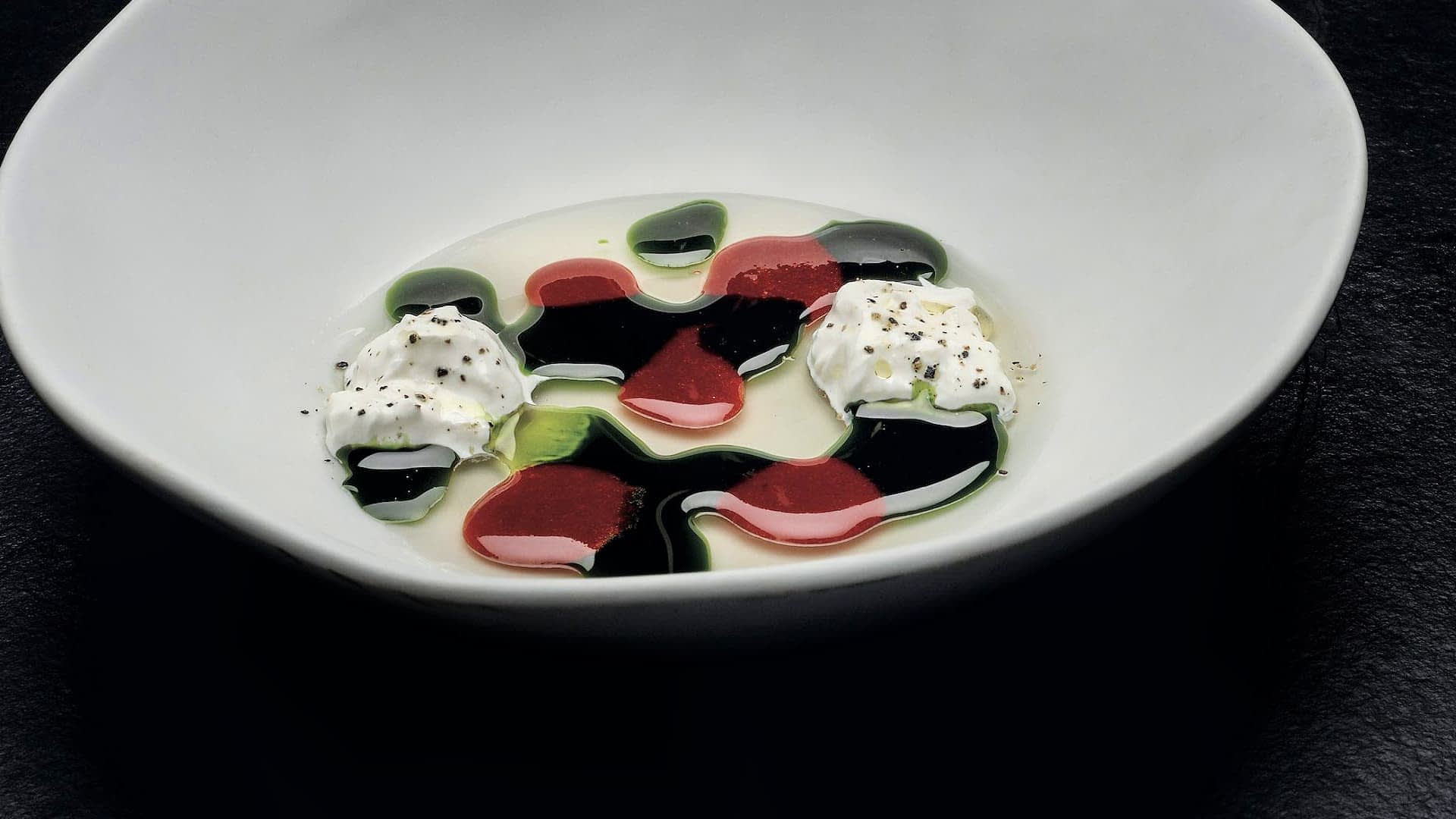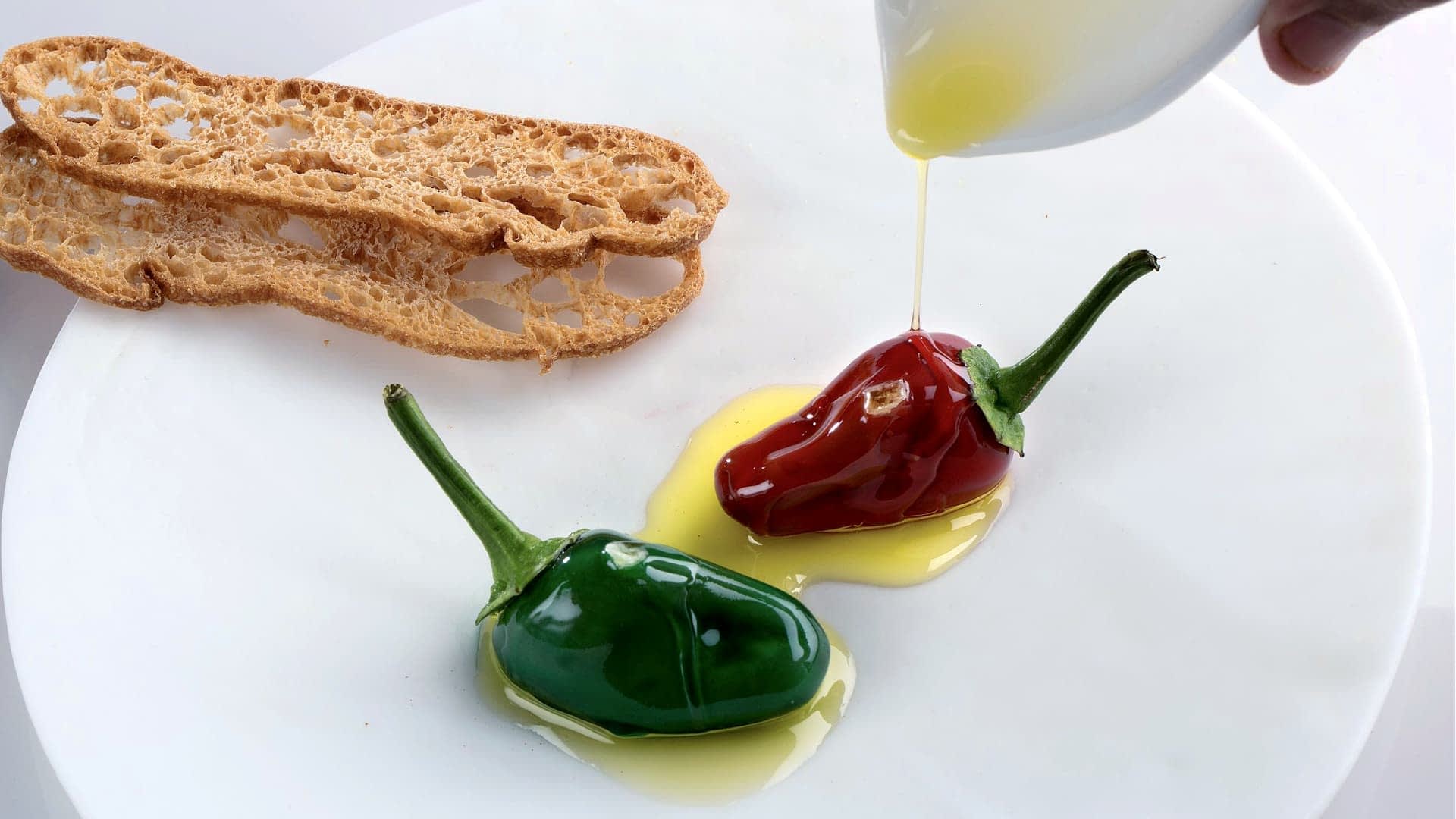Enhancing Excellence: How the World's Best Restaurant Uses Extra Virgin Olive Oil
Locally sourced extra virgin olive oil is an essential ingredient for the Michelin-star chefs at Disfrutar Barcelona and their award-winning tasting menu.
 Eduard Xatruch, Oriol Castro and Mateu Casañas (Photo: Joan Valera)
Eduard Xatruch, Oriol Castro and Mateu Casañas (Photo: Joan Valera) “Extra virgin olive oil is one of the most important products we use,” said Eduard Xatruch, a co-founder and chef at Disfrutar Barcelona.
The Michelin 3‑Star restaurant, situated half a dozen blocks from the iconic architecture of Casa Milà, was recently named the world’s best restaurant by The World’s 50 Best, a hospitality industry trade publication.
“We are three chefs,” Xatruch told Olive Oil Times. “Like me, Mateu [Casañas] and Oriol [Castro] grew up in Catalonia, a country of olive oil.”
Since they were young, Xatruch and his partners have been cooking with extra virgin olive oil almost daily.
See Also:Three Beloved Greek Dishes to Try This Summer“These flavors remain marked in your taste memory and culinary culture,” he said. “Later, as we began to work professionally in the kitchen, we have used extra virgin olive oil naturally throughout our lives.”
“And here at Disfrutar, we make creative cuisine with a base of traditional flavor,” Xatruch added. “Of course, we are inspired by products and tastes from all over the world, but Catalan and Spanish cuisine in terms of traditional preparations inspires us, and olive oil is a product we use a lot.”
Disfrutar primarily uses Arbequina extra virgin olive oil with a Siurana Protected Designation of Origin (PDO) certification sourced solely from Cooperativa Agrícola Vila-Seca. Spread across 12,000 hectares west of Tarragona, the cooperative produces about 4,000 tons of PDO olive oil annually.
“It is an extra virgin olive oil that is very fruity. It doesn’t sting; it is very pleasant in the mouth and greatly respects the original flavor of the product,” Xatruch said. “That is why it is an oil we use in 90 percent of the dishes.”

Ninety percent of the extra virgin olive oil used at Disfrutar comes from a single cooperative in Tarragona. (Photo: Joan Valera)
“Since it is an oil that we love,” he added, “the cooperative takes care of us,” leaving aside a significant portion of extra virgin olive oil at the beginning of each harvest specifically for the chefs at Disfrutar Barcelona.
The other 10 percent is Picual extra virgin olive oil, used in specific preparations where the chefs want a strong flavor.
Xatruch said he knows the people who run the cooperative well and frequently visits to taste the extra virgin olive oil and speak with the members.
He believes these relationships are essential for anyone who wants to achieve the highest possible quality of gastronomy: just as the quality of extra virgin olive oil is dictated by that of the olives, world-class haute cuisine begins with high-quality ingredients.
“We do this with many other products,” he said. “It is very important to know the product at its origin, know the producers and have that direct relationship… We have always said that the more local the product, the better.”
These relationships are essential after consecutive years of poor harvests in Spain, where production dipped to historically low levels, especially in Catalonia in the 2022/23 crop year.
In the kitchen, extra virgin olive oil permeates almost every step of the restaurant’s classic tasting menu, used for finishing and during the heart of the cooking process through to dessert.
“For example, we make a classic dish from Disfrutar that we call the Gilda del Disfrutar,” Xatruch said. “It is inspired by the traditional flavors of gilda, the typical Basque pincho made with piparra, a green pepper cut into pieces in vinegar, anchovy and olive.”

La gilda de Disfrutar (Photo: Francesc Guillamet)
“We make a version using what we call a Disfrutar olive, which is an operation that we do with the olive juice and the cocoa butter that gives us a crunchy oil that remains inside,” he added. “We accompany it with anchovy slices, a piece of marinated mackerel, some piparra seeds, a little passion fruit, and we finish by dressing it with extra virgin olive oil.”
While extra virgin olive oil is mainly used to finish this dish, it plays a more prominent culinary and textural role in the restaurant’s polvorón de tomate.
“Polvorón de tomate is a classic snack of the restaurant that we finish with Arbequina caviaroli,” Xatruch said.
The preparation begins by grinding freeze-dried tomato flakes into a fine powder, mixed with olive oil and salt before being kneaded into a dough and baked.

Polvorón de tomate with Arbequina Caviaroli (Photo: Francesc Guillamet)
The pastry-like polvorones are accompanied by Arbequina caviaroli, which is produced using a technique developed by Ferran Adria, a former colleague at El Bullí. The method involves surrounding the oil with a thin layer of water containing a gum that creates a fine gelatin capsule around the oil drop, similar to how caviar is formed.
“Instead of using the oil as a dressing, we solidify it and make some spheres of oil seeking to give the dish a texture,” Xatruch said.
Most dishes prepared at Disfrutar Barcelona use Arbequina extra virgin olive oil, which has a milder flavor.
“Depending on the type of cuisine, we use Arbequina because it is an oil that is very delicate in texture and is not astringent,” Xatruch said. “In each dish, we look for the oil to be very harmonious.”
However, the chefs sometimes seek a more pungent extra virgin olive oil to enter the spotlight.
“For example, we made a dish where we put a water base of tomato gelatin with a little fresh cheese, and then we put basil oil, tomato oil and extra virgin oil,” he said. In this case, we used Picual to give more intensity to the dish and prominence to the oil.”

Tomato gelatinin extra virgin olive oil and basil oil (Photo: Francesc Guillamet)
Finally, extra virgin olive oil is also featured for dessert, helping to accentuate the flavors of the chocolate.
“We have a dessert, a classic dish of Disfrutar inspired here in Catalonia,” Xatruch said. “When we opened Disfrutar, we make a dessert that we call chocolate peppers with olive oil and salt, which consists of a Trompe l’oeil [a style of painting intended to give a convincing illusion of reality].”
“We make a chocolate truffle, but it is shaped like a pepper, and we put gelatin in it,” he added. “There is a red pepper and a green pepper. On top of the red pepper, we put a little bit of chili on it to make it spicy. On top of the green pepper, we put mint so that you have this flavor, and we finish it in front of the client by dressing the peppers with extra virgin olive oil, a little salt and a little toasted bread.”

Chocolate peppers with extra virgin olive oil and salt (Photo: Francesc Guillamet)
Disfrutar Barcelona offers a fixed gastronomic offering in its classic menu and an alternative festival menu at specific times of the year, with the price of €295 per person until the end of 2024.
“Premium products have become much more expensive in the last two years,” Xatruch said. “We are a restaurant that seeks excellence, and in the end, if excellence has a higher price, then you have to pay it.”








